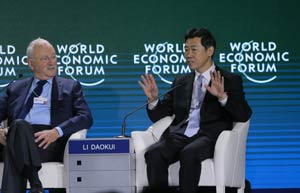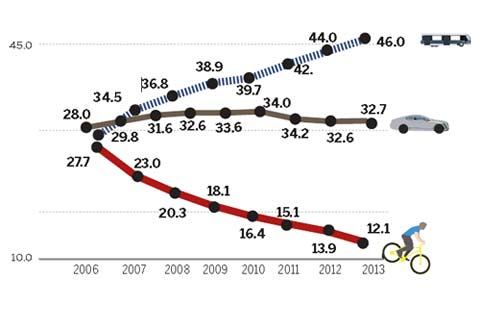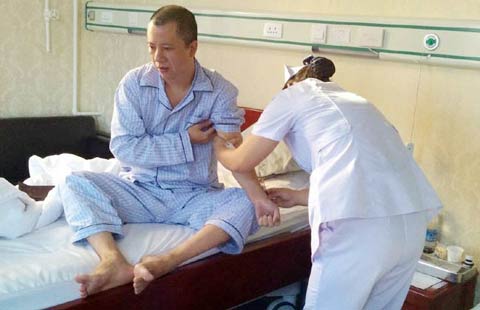Economist who swims against tide
Updated: 2014-09-15 09:29
By Fu Jing(China Daily)
|
|||||||||||
The first two challenges have made ordinary Chinese "unhappy", and if the environment worsens, neither rich nor poor will feel happy, he says. "So we must come to terms with such challenges."
Lin says the world's poor, especially in Africa, missed many development opportunities during colonial rule by the West and after that.
They deserve a better life, he says.
During his term as World Bank chief economist, from 2008-12, he devoted a lot of time to visiting Africa. While he was the first Asian to occupy this position, he once said, "More importantly, I may be first World Bank chief economist understanding the needs of developing countries."
Among the development lessons African countries can learn from China, he cites the dual-track approach to reform, offering transitory protection to nonviable firms to maintain stability while liberalizing the sectors in which the country has comparative advantages.
 |
 |
In shifting some manufacturing to Africa, which has plenty of labor and resources, China and Europe also benefit from offering technology, know-how, capital and export markets, he says.
Lin says he is concerned about Europe, which is still at risk of slipping into a third recession since the 2007-08 global economic turmoil, which would cut China's exports and investment in the continent.
"The risk cannot be removed right now as the European Union (especially in the eurozone), has not come up with necessary structural reforms to improve its competitiveness."
The eurozone's GDP, according to the European Central Bank, was unchanged in the second quarter of this year compared with the previous quarter. It also followed Germany and Italy reporting GDP declines by 0.2 percent in the second quarter, compared with the first quarter of this year.
To help revive the economy, the European Central Bank cut its interest rate further early this month, and the exchange rate of the euro against the yuan fell to 7.95 on Sept 8 compared with 8.68 on May 8.
Further depreciation of the euro, as a result of loose monetary policies, will help boost exports from the EU, Lin says.
The eurozone's competitiveness, according to the traditional formula used by multilateral lending institutions such as the International Monetary Fund, should be a result of further structural reforms and depreciation of currency, he says.
"But the problems are that the countries in Europe, hit heavily by financial and debt crisis, don't have their own currency, and if you use such instructions, it means currency depreciation in the whole eurozone."
"If the eurozone currency depreciates further, this would cause a 'competitive depreciation of the dollar', which is something that the global economy is not prepared for," Lin says.
To help the global economy grow at a faster pace, Lin says it is important for the major economies to consider a "grand plan infrastructure construction" to shake off economic stagnation and crisis.
Europe still has room to improve its infrastructure, and such measures would boost its exports of technology and products, Lin says.
Related Stories
Lin: Recession risks rising in Europe 2014-09-10 07:56
Comments on China's economy 2012-09-17 16:31
Economists, officials' comment on economy 2012-09-17 11:10
China's 8% growth to last for another 20 yrs: Lin 2012-09-11 16:14
Lin suggests fiscal policy in securing growth 2012-06-22 10:31
World Bank's Justin Lin leaves post 2012-06-05 14:28
Today's Top News
Hamburg Summit on the agenda for Li's visit
Scottish support for independence
US mulls Tokyo's military reach
China to assist in fight on terror
Chinese attractions make Hurun ecotourism list
Teachers underrated and poorly paid in China
Police capture last detention center escapee
Obama orders airstrikes in Syria for first time
Hot Topics
Lunar probe , China growth forecasts, Emission rules get tougher, China seen through 'colored lens', International board,
Editor's Picks

|

|

|

|

|

|





